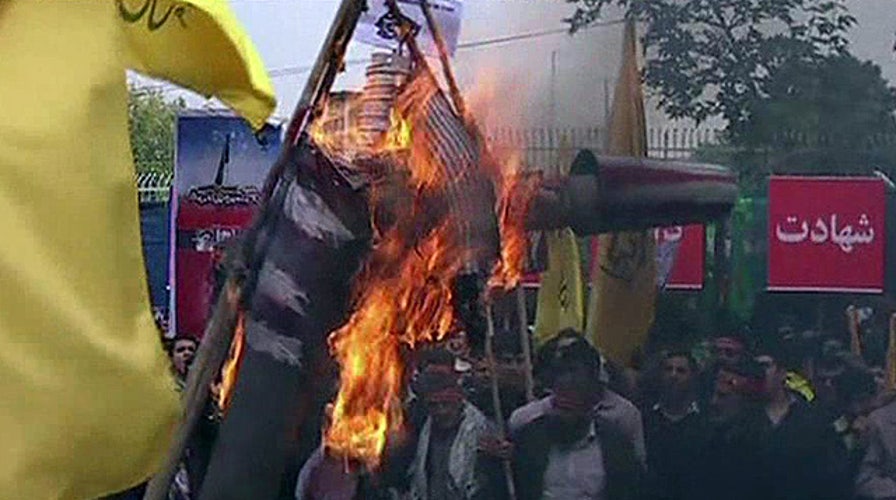Iran protests on anniversary of 1979 US embassy takeover
Massive anti-American rally in Tehran
Iran's U.N. ambassador called nuclear weapons the greatest threat to present and future generations on Monday, just days before Tehran resumes talks with six world powers aimed at reining in its suspect nuclear program.
Mohammad Khazaee told a meeting of the General Assembly's disarmament committee that "the total elimination of these inhuman weapons is the only absolute guarantee against their threat or use."
The election of President Hassan Rouhani, viewed as a moderate, has led to a revival of talks in Geneva aimed at allaying Western fears that the real aim of Iran's nuclear enrichment program is producing nuclear weapons, not nuclear energy and medical isotopes as it claims.
For years, Iran has insisted that its nuclear program is purely peaceful, and that it opposes nuclear weapons, but Khazaee's comments were especially strong.
"Before they consume us all together, we must consume them all together," he said. "This is not an option but a must. This is both our right and responsibility."
Khazaee told the committee "we need to invest further political will to achieve a nuclear weapon-free world at the earliest date."
The committee adopted a number of resolutions, including a Japanese-sponsored measure on "united action towards the total elimination of nuclear weapons," which strongly condemned North Korea's nuclear test in February and called for further efforts by nuclear states to reduce and ultimately eliminate all types of nuclear weapons.
It urges all countries to sign the nuclear test ban treaty, encourages the establishment of new nuclear-weapon-free zones, and calls on North Korea to abandon all nuclear weapons and expresses concern at its uranium enrichment and light water reactor construction.
The resolution was approved by the disarmament committee by a vote of 164-1 with 14 abstentions. North Korea voted "no" while Iran, Israel, Syria, Russia, China, Brazil and India were among those who abstained. It is virtually certain that the resolution will receive final approval by the 193-member General Assembly at a December meeting.
Unlike Security Council resolutions, General Assembly resolutions are not legally binding but they do reflect world opinion and carry moral weight.
A North Korean diplomat, who refused to give his name, said his country believes there should be total elimination of nuclear weapons and supports denuclearization of the Korean peninsula — but he stressed that any actions must be simultaneous and the North "will therefore not unilaterally move first."
The diplomat said North Korea is developing nuclear weapons "for the purpose of deterring the United States attack and defending its sovereignty."

